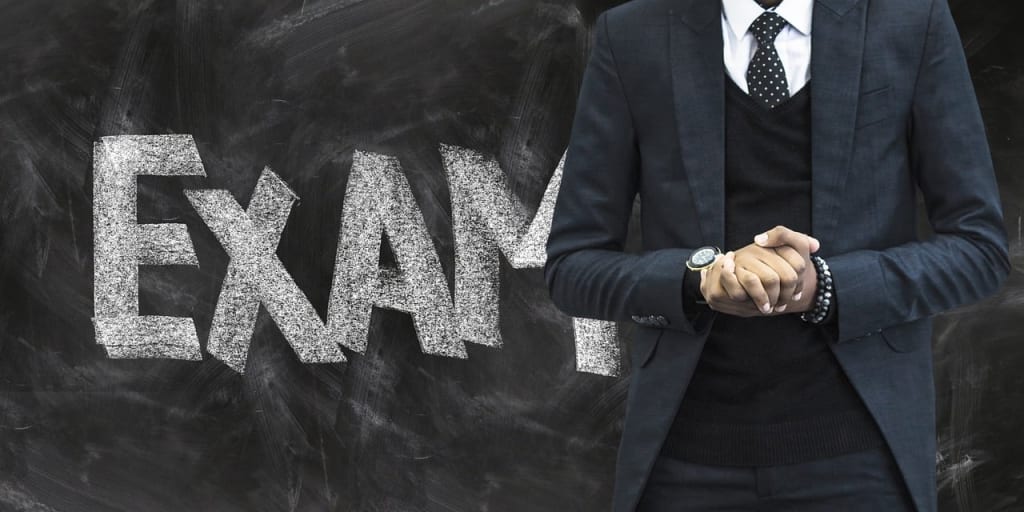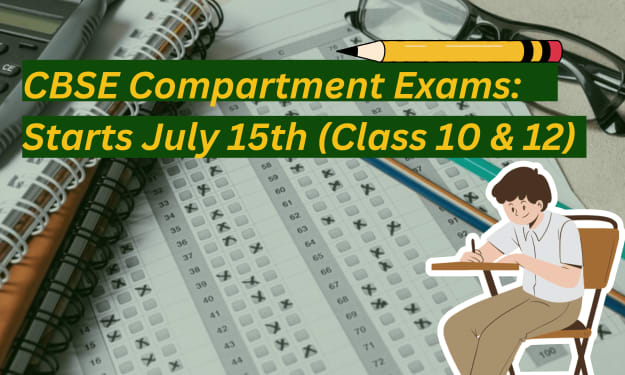The Two Pioneers of Exams: Sir Charles William Eliot and Henry Fischel
The Untold Story of How Two Men Changed the Way We Learn and Are Evaluated.

What do a 19th century Harvard president and a tired professor have in common? Believe it or not, they played a crucial role in shaping the modern-day exam system. Read on to discover the origins of exams and how these two historical figures paved the way for the tests that rule our lives today.
Henry Fischel, a professor at the University of Chicago, was tired of grading long essays from his students. In search of a solution, he introduced the concept of short-answer exams, which were easier to grade and more closely resembled the exams we know today. Fischel's innovation gained popularity among professors and helped shape the modern exam system.
Together, Eliot and Fischel played a crucial role in shaping the modern exam system. Their contributions have had a lasting impact on education and continue to shape how students learn and are evaluated today.
As Eliot's zeal for rigorous exams and Fischel’s distaste for endless essay grading caught on, a tidal wave of testing swept through academia. Soon, standardized testing was all the rage, with schools across the United States and Europe jumping on the exam bandwagon. Students found themselves staring down the barrel of a new kind of education - one that valued rote memorization and quick answers over deeper understanding.
So what happened next? Did people just accept this new reality of endless exams, or did they resist?
As exams became increasingly commonplace, some people began to question their usefulness. Critics argued that exams were a poor measure of true understanding and intelligence, and that they placed too much emphasis on memorization and rote learning.
But the momentum of the exam system was too strong to be easily halted. Exams continued to grow in popularity, becoming a staple of education around the world. Today, they remain a controversial topic, with some educators pushing for a more holistic approach to assessment and others defending the value of traditional exams.
One of the most striking aspects of Eliot and Fischel's contributions is the way in which their ideas reflect the values and priorities of their time. In the 19th century, as industrialization and urbanization were reshaping the world, there was a growing emphasis on efficiency and standardization. This mindset was reflected in Eliot's vision of academic rigor and Fischel's search for a more efficient way to grade exams.
Eliot’s emphasis on academic rigor was not just about ensuring that students were learning, but also about establishing Harvard as a world-class institution of higher learning. In the increasingly competitive landscape of higher education, Eliot saw exams as a way to distinguish Harvard from other universities and to demonstrate its commitment to academic excellence.
Similarly, Fischel’s innovation of the short-answer exam was motivated not just by his desire to reduce his own workload, but also by the larger trend towards efficiency and standardization in American society.
In fact, the short-answer exam was part of a broader movement in education called "scientific management," which sought to apply the principles of efficiency and productivity that were being developed in the industrial sector to the field of education. Fischel’s idea was seen as a way to streamline the process of grading and make it more efficient and consistent.
Today, the legacy of Eliot’s and Fischel’s ideas can still be seen in the way that exams are used and debated in the educational system. On one hand, exams remain an important tool for assessing student learning and measuring academic achievement. On the other hand, critics argue that exams place too much emphasis on memorization and rote learning, and that they fail to capture the full range of skills and abilities that are necessary for success in the modern world.
The story of Sir Charles William Eliot and Henry Fischel is a reminder that the history of education is shaped by the visions and innovations of individuals. Their ideas and contributions helped to shape the modern exam system, and their legacy continues to be felt in the educational landscape today.
About the Creator
Enjoyed the story? Support the Creator.
Subscribe for free to receive all their stories in your feed. You could also pledge your support or give them a one-off tip, letting them know you appreciate their work.





Comments
There are no comments for this story
Be the first to respond and start the conversation.